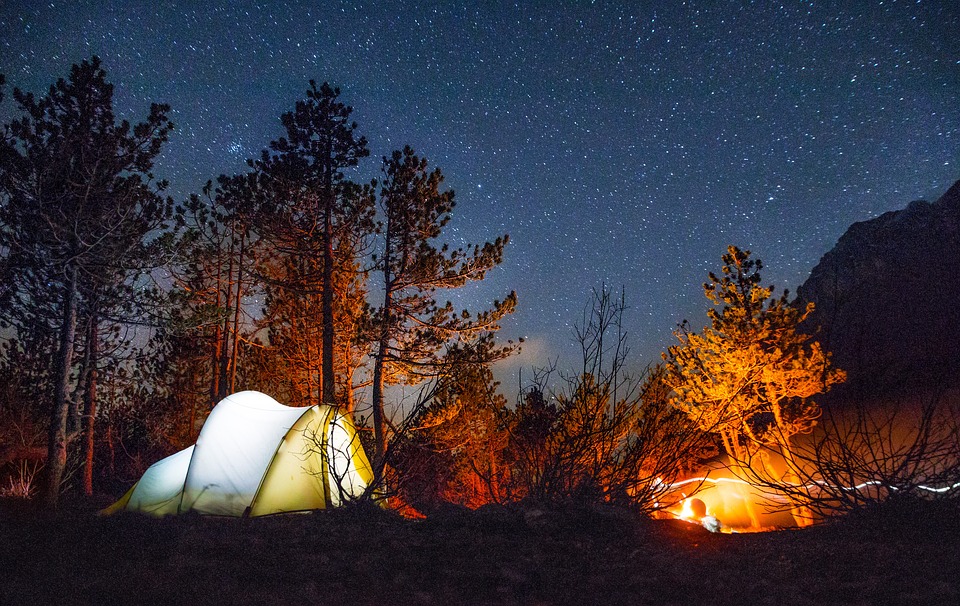Poland’s State Forests (Lasy Państwowe) will make areas for overnight stays available in each of its 429 forestry management units starting in May this year, following a successful pilot scheme pioneered by outdoor enthusiasts seeking to camp in remote areas.
Under the Act on Forests of 1991, it is illegal to camp in spots other than those designated by the owner of the forestry management unit. However, outdoor enthusiasts have often sought to stay in remote places rather than designated campsites.
The bushcraft and survival community in Poland is estimated at 40,000 people. Since 2018, representatives of such groups – backed by cyclists, scouts, detectorists and dog-sledders – have lobbied authorities to expand the areas where overnight stays are permitted, reports the Polish Press Agency (PAP).
In response, over the past year State Forests has run a pilot scheme – “Zanocuj w lesie” (Stay overnight in the forest) – which allowed groups of up to four people to stay in 46 designated spots with a total area of 65,000 hectares.
During this time surveys were held among participants and foresters, which showed “that there is a need for the continuation of this form of making forests available,” said Andrzej Konieczny, the head of State Forests, a government body.
Now, according to new rules, each spot will be available for a maximum of nine people for no longer than two nights in a row. Campers will be required to leave no trace of their stay when they depart.
“We are looking for solutions that will allow everyone to enjoy the forest in a way that is safe both for them and for the forest,” says Konieczny, adding that it was especially pleasing to be able to offer such possibilities during the pandemic. “We will evaluate the effects in a year.”
“We must follow new trends in recreation and try to give everyone the freedom to pursue their passions in the forest,” adds Anna Pikus, head of State Forests’ department of social forest functions. “Forest users should, in turn, understand the duties and responsibilities of foresters.”
The areas that were part of the pilot study will remain available for stays. Using gas stoves will be permitted in them, but not in newly added areas.
Groups larger than nine people, or those wishing to stay in a designated spot for longer than two nights, will need to contact the relevant forestry management unit by email to receive approval.
Przemysław Płoskonka of the Polish Survival School says that he hopes the project “will contribute to the dissemination of the idea of outdoor ethics”, reports TVP Info.
He added that he hopes that the “seven principles of Leave No Trace” – such as camping on durable surfaces, disposing properly of waste, and leaving what you find – will “permanently enter the forest etiquette”.
Founded in 1924, State Forests manages a total of 7.5 million hectares of land – a quarter of Poland’s territory – on behalf of the Polish treasury. The state owns 77.8% of forest areas in Poland.
Main image credit: lukasbieri /Pixabay (under Pixabay License)

Maria Wilczek is deputy editor of Notes from Poland. She is a regular writer for The Times, The Economist and Al Jazeera English, and has also featured in Foreign Policy, Politico Europe, The Spectator and Gazeta Wyborcza.




















